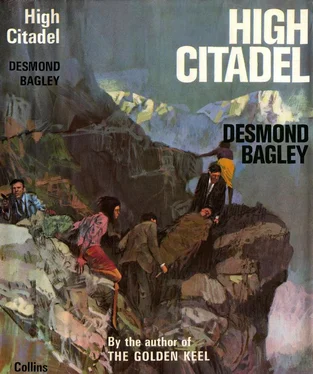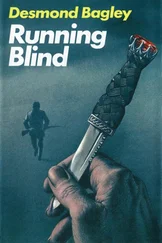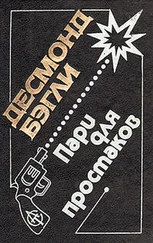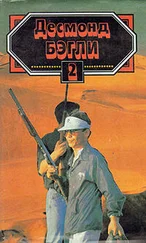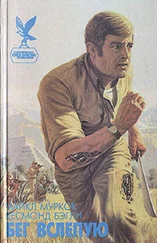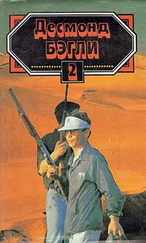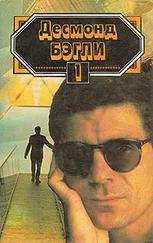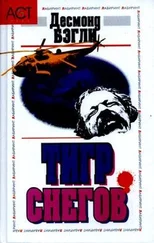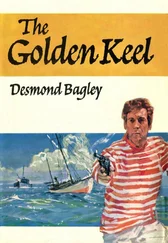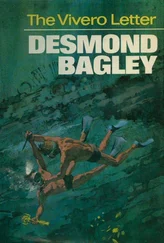He tossed the match near a pool of paraffin and it caught fire in a flare of creeping flame which ran quickly up the woodwork. Hastily he lit the bundle of paraffin-soaked rags he held and ran along the line of huts, tossing them inside. As he reached the end of the first line he heard a distant crash from the road and a couple of shots. Better make this quick, he thought; now’s the time to get out of here.
By the time he left the first line of huts was well aflame, great gouts of fire leaping from the windows. He scrambled up among the rocks above the camp and headed for the road, and when he reached it looked back to see the volcano of the burning camp erupting below. He felt satisfaction at that — he always liked to see a job well done. The mist was too thick to see more than the violent red and yellow glow, but he could make out enough to know that all the huts were well alight and there were no significant gaps. They won’t sleep in there tonight, he thought, and turned to run up the road.
He went on for a long time, stopping occasionally to catch his labouring breath and to listen. He heard nothing once he was out of earshot of the camp. At first he had heard a faint shouting, but now everything was silent on the mountainside apart from the eerie keening of the wind. He did not know whether Armstrong and Benedetta were ahead of him or behind, but he listened carefully for any sound coming from the road below. Hearing nothing, he turned and pushed on again, feeling the first faint intimation of lack of oxygen as he went higher.
He was nearing the mine when he caught up with the others, Armstrong turning on his heels with alarm as he heard Willis’s footsteps. Aguillar and Miss Ponsky were there also, having made very slow progress up the road. Armstrong said, falsely cheerful, ‘Bloody spectacular, wasn’t it?’
Willis stopped, his chest heaving. ‘They’ll be cold tonight — maybe they’ll call off the final attack until tomorrow.’
Armstrong shook his head in the gathering darkness. ‘I doubt it. Their blood is up — they’re close to the kill.’ He looked at Willis, who was panting like a dog. ‘You’d better take it easy and help Jenny here — she’s pretty bad. Benedetta and I can push up to the mine and see what we can do up there.’
Willis stared back. ‘Do you think they’re far behind?’
‘Does it matter?’ asked Benedetta. ‘We fight here or we fight at the mine.’ She absently kissed Aguillar and said something to him in Spanish, then gestured to Armstrong and they went off fairly quickly.
It did not take them long to get to the mine, and as Armstrong surveyed the three huts he said bleakly, ‘These are as indefensible as the camp. However, let’s see what we can do.’
He entered one of the huts and looked about in the gloom despairingly. He touched the wooden wall and thought, bullets will go through these like paper — we’d be better off scattered on the hillside facing death by exposure. He was roused by a cry from Benedetta, so he went outside.
She was holding a piece of paper in her hand and peering at it in the light of a burning wooden torch. She said excitedly, ‘From Forester — they prepared one of the mine tunnels for us.’
Armstrong jerked up his head. ‘Where?’ He took the piece of paper and examined the sketch on it, then looked about. ‘Over there,’ he said pointing.
He found the tunnel and the low wall of rocks which Forester and Rohde had built. ‘Not much, but it’s home,’ he said, looking into the blackness. ‘You’d better go back and bring the others, and I’ll see what it’s like inside.’
By the time they all assembled in the tunnel mouth he had explored it pretty thoroughly with the aid of a smoky torch. ‘A dead end,’ he said. ‘This is where we make our last stand.’ He pulled a pistol from his belt. ‘I’ve still got Rohde’s gun — with one bullet; can anyone shoot better than me?’ He offered the gun to Willis. ‘What about you, General Custer?’
Willis looked at the pistol. ‘I’ve never fired a gun in my life.’
Armstrong sighed. ‘Neither have I, but it looks as though this is my chance.’ He thrust the pistol back in his belt and said to Benedetta, ‘What’s that you’ve got?’
‘Miguel left us some food,’ she said. ‘Enough for a cold meal.’
‘Well, we won’t die hungry,’ said Armstrong sardonically.
Willis made a sudden movement. ‘For God’s sake, don’t talk that way.’
‘I’m sorry,’ said Armstrong. ‘How are Miss Ponsky and Señor Aguillar?’
‘As well as might be expected,’ said Benedetta bitterly. ‘For a man with a heart condition and an elderly lady with a hole in her shoulder, trying to breathe air that is not there.’ She looked up at Armstrong. ‘You think there is any chance for Tim?’
He averted his head. ‘No,’ he said shortly, and went to the mouth of the tunnel, where he lay down behind the low breastwork of rocks and put the gun beside him. If I wait I might kill someone, he thought; but I must wait until they’re very close.
It was beginning to snow.
It was very quiet by the cutting, although O’Hara could hear voices from farther up the road by the burning camp. There was not much of a glow through the mist now, and he judged that the huts must just about have burned down to their foundations. Slowly he relaxed his hand and let the sub-machine-gun fall. It clattered to the rocks and he pulled up his arm and massaged it.
He felt very damp and cold and wished he had been able to strip the llama-skin coat from the sentry by the trebuchet — young Juan would not have needed it. But it would have taken too long, apart from being a gruesome job, and he had not wanted to waste the time. Now he wished he had taken the chance.
He stayed there, sitting quietly for some time, wondering if anyone had noticed the noise of metal on stone. Then he set himself to retrieve the gun. It took him ten minutes to fish it from the crevice with the aid of the crossbow, and then he set off up the mountain again, steering clear of the road. At least the enforced halt had rested him.
Three more trucks had come up. They had not gone straight up to the mine — not yet; the enemy had indulged in a futile attempt to quench the fires of the flaming camp and that had taken some time. Knowing that the trucks were parked above the camp, he circled so as to come out upon them. His ankle was bad, the flesh soft and puffy, and he knew he could not walk very much farther — certainly not up to the mine. It was in his mind to get himself a truck the same way he got himself a gun — by killing for it.
A crowd of men were climbing into the trucks when he got back to the road and he felt depressed but brightened a little when he saw that only two trucks were being used. The jeep was drawn up alongside and O’Hara heard the Russian giving orders in his pedantic Spanish and fretted because he was not within range. Then the jeep set off up the road and the trucks rolled after it with a crashing of gears, leaving the third parked.
He could not see whether a guard had been left so he began to prowl forward very cautiously. He did not think that there was a guard — the enemy would not think of taking such a precaution, as everyone was supposed to have been driven up to the mine. So he was very shocked when he literally fell over a sentry, who had left his post by the truck and was relieving himself among the rocks by the roadside.
The man grunted in surprise as O’Hara cannoned into him. ‘ Cuidado! ’ he said, and then looked up. O’Hara dropped both his weapons as the man opened his mouth and clamped the palm of his hand over the other’s jaw before he could shout. They strained against each other silently, O’Hara forcing back the man’s head, his fingers clawing for the vulnerable eyes. His other arm was wrapped around the man’s chest, clutching him tight.
Читать дальше
